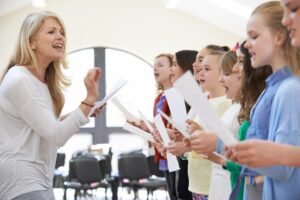Advise on Music Lessons
I Need Your Advice; I have Never Done This Before. Not every person who inquires about piano, guitar, violin, or voice lessons asks this directly but in many ways, every parent who’s starting their child on a path to learn an instrument needs advice on music Lessons.

Here’s what we at Lessons In Your Home want you to know about lessons for your children. It’s our advice about lessons we’re sharing with you.
Music Should Be Fun
Music and music lessons should be fun. So when we’re seeking advice on music lessons, first and foremost understand that your child should enjoy taking lessons and learning to play.
Positive teaching methods such has building from what a student does well naturally instead of what they don’t do well is the way to go. You will and can see a smile on your child’s face when you start with Lessons In Your Home.
Choosing An Instrument
If your child doesn’t really have an instrument they’d like to learn you might need our advice on music lessons. You’re going to hear a pretty common theme, if they don’t have a preference, choose piano. Piano is the gateway instrument. However for students 8 or younger, piano, violin, or guitar are great choices. You can start on voice lessons and voice lessons are popular but learning and starting music lessons on one of these other instruments is always what we recommend.
If your child knows what they want to play, go for it. A students desire carries a lot of weight. We prefer parents to lead a conversation about instrument choice rather then ask an open-ended question. In other words, if you would like to see your child learn either the violin or guitar, try “would you like to take guitar or violin lessons” rather than “would you like to take music lessons, what instrument do you want to play?” If your child says I don’t know to your question about violin or guitar, you choose for them. Showing them videos and pictures isn’t the way to go. Remember their lessons are going to be fun no matter what instrument they learn.
What Does Practice Involve
Practice also needs to be fun because after all, we’re playing music. We like it not to feel like homework, which can be tricky but consistency is key. Your music teacher is going to suggest setting aside 15-20 minutes a day for practice. This isn’t a bad expectation for someone who’s beginning to learn. Instead of saying “if you start lessons you’re going to have to practice” you could simply say, “if we start lessons, you’ll need to play the piano for about 15-20 minutes per day.” Sounds so much better than practice right?
What It Means To Take Private Music Lessons
When getting asked for our advice on taking music lessons we’re often and most largely getting asked “what does it mean to take private lessons”? Are you going to try to turn my child into a musician?
The goal of music teachers is to have their students learn how to play an instrument. They want music lesson students to love to play and have fun. They know and understand that the skills required to play an instrument will serve a student for life.
Your music teacher is also sharing a tradition, the tradition of being a musician. Musicians aren’t only teachers and performers, and most musicians do not make their living from music. They’re doctors and lawyers, consultants and counselors, they share a common bond with others who also know and understand the language of music. This is what it means to take private music lessons with a qualified music teacher.